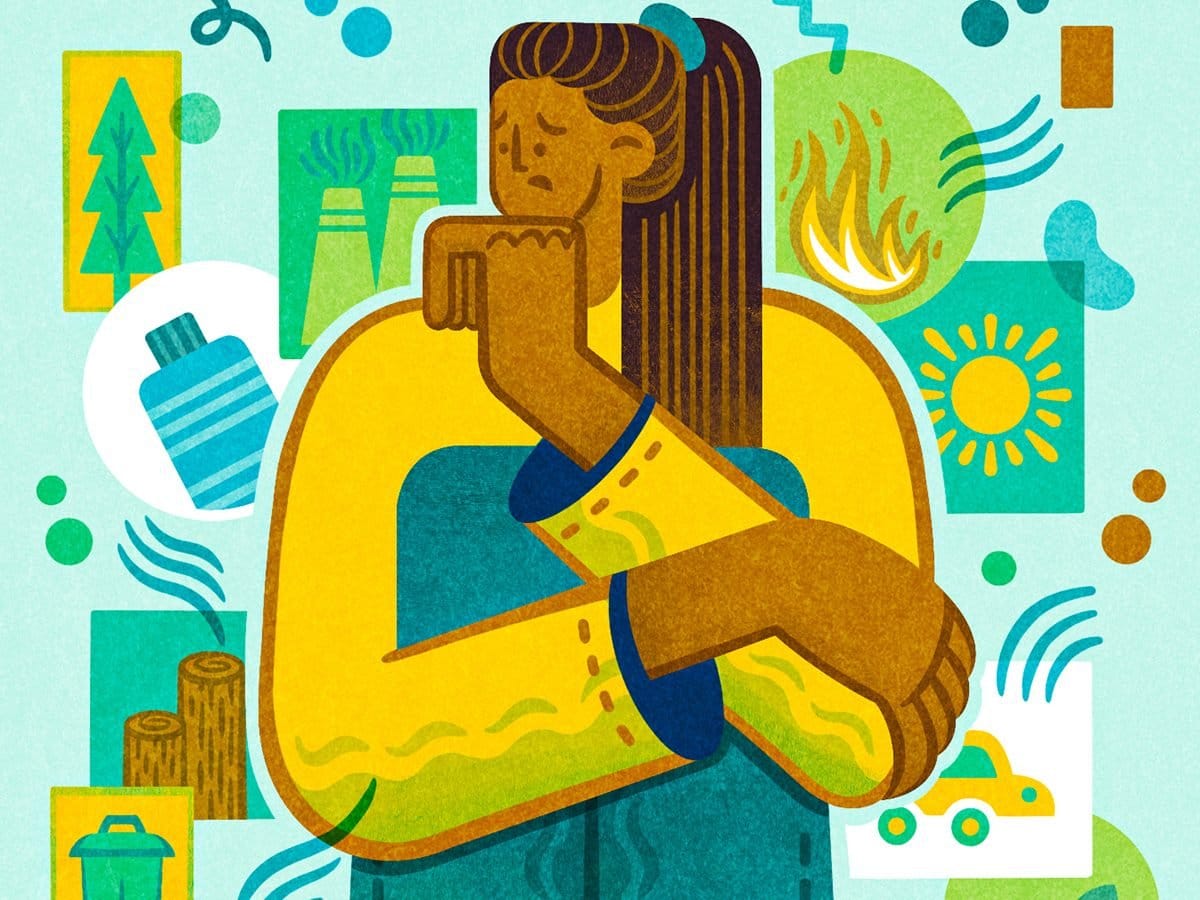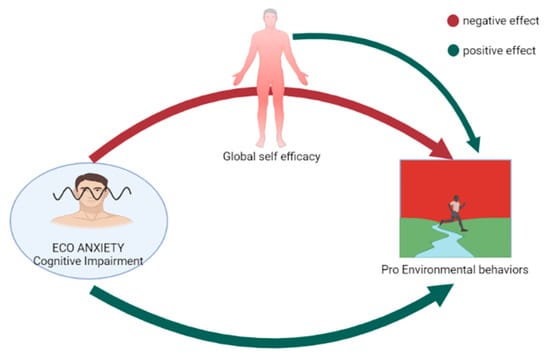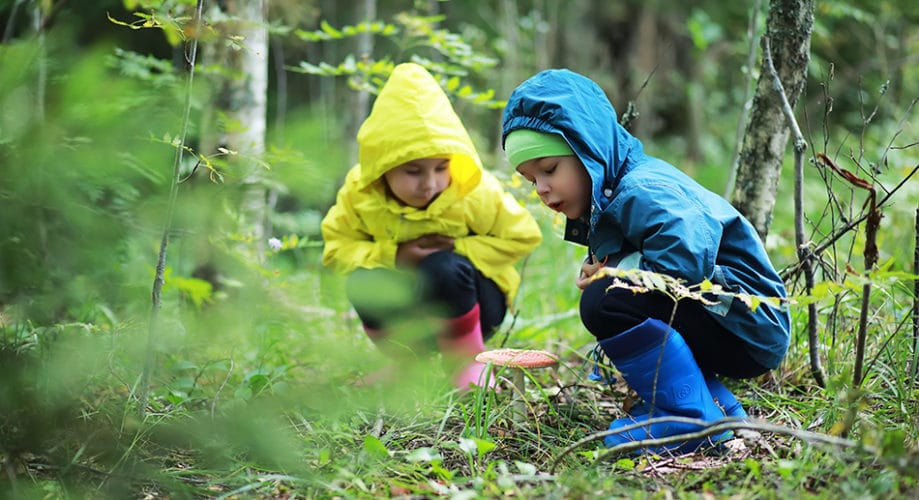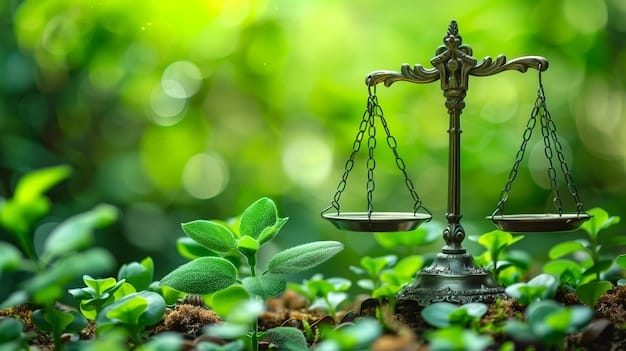Integrating Eco-Psychology: A Therapist’s Approach to Climate Anxiety

Bio:
Elizabeth Padilla, LICSW, is a therapist with 12 years of experience, currently working at Catalyst Mental Health in Bloomington, Minnesota. They earned a BA in Psychology from the University of Colorado and later a Master’s in Social Work, influenced by their early work in a mental health hospital, where they saw how policy impacts mental health care. Initially specializing in OCD, anxiety, and grief, they shifted focus five years ago to eco-psychology after their own emotional awakening to climate change.
Summary:
Elizabeth defines eco-psychology as the emotional and psychological connection between humans and nature, blending philosophy with practical benefits (e.g., nature’s calming effects). Eco-anxiety—distress over environmental harm—often involves grief, fear, and despair. Drawing on her OCD and grief therapy background, she helps clients process these emotions through gradual exposure, validation, and reframing grief as an expression of love.
For urban clients with limited nature access, she suggests alternatives like nature documentaries, houseplants, or mindful observation. Her approach combines evidence-based therapies (CBT, ACT, IFS) with nature-centric philosophies.
She encourages therapists to validate eco-anxiety, even in small ways, and to help clients balance news consumption with self-care.
Could you tell us how you arrived at the point of becoming a therapist and interested in eco-psychology?
I have been a full-time therapist for 12 years. I knew this was the work I wanted to do when I was a young adult so I received my BA in Psychology from the University of Colorado. After graduating I worked at a mental health hospital for a few years while I was living in Boulder. I'm grateful for that opportunity because I learned how much policy and culture impacts individuals and mental health treatment. This led me to pursue a Master's in social work. The combination of clinical and policy work, and understanding the overlap and interaction of these realms was a great fit for me.
I am currently working at a group practice called Catalyst Mental Health. There are several locations around the twin cities, and I am at the Bloomington office. I appreciate that we are given a great deal of flexibility and encouragement to shape our practice to what best suits us. Before I began my climate-aware work 5 years ago i was specializing in OCD, anxiety, and grief, which I believe positioned me to understand and confront eco-anxiety in a way that is gentle yet empowering.
How do you define eco-psychology in your practice, and what drew you to this approach?
I explain eco-psychology as the emotional and psychological connection between humans and the natural world. I consider Eco-psychology a philosophical approach, full of metaphors about reciprocity, hope, and survival. It's also a practical approach because nature is full of remedies: we are hard-wired to feel safe when we hear birdsong, touching soil releases serotonin, and being near water activates our parasympathetic nervous system making us feel more relaxed.
Dominant paradigms in our society encourage scarcity mindset, competition, extraction and eco-psychology is a beautiful counter framework that focuses on connection, mindfulness and systems-thinking.

I'm also going to define "eco-anxiety" which is distress about the current and future harm to the environment caused by human activity and climate change. It is often accompanied by feelings of anger, grief, fear, guilt, betrayal and despair. I began doing this work because i was going through a bit of a personal climate-awakening 5-6 years ago. I always understood climate change logically but began to process it much more emotionally. It felt overwhelming and I recognized I needed support. I did my own psychological work and then began to consider what else i could do to meet this crisis, and discovered there was a demand for mental health professionals who could guide people through the anxiety and grief related to climate change. It felt especially meaningful to learn that people who are overwhelmed are less inclined towards pro-social behavior. Burnout and cynicism help empower the same structures that created the climate crisis. I wanted to push against that while helping individuals.
Many people report "ecological grief" or anxiety about climate change. How do you help clients process these emotions without becoming overwhelmed?
Great question. This is where my OCD background helps. When treating OCD I am careful to understand not only what a person is resisting but specifics about how it feels to move closer to the pain. With exposure response prevention work we break an overwhelming problem into smaller, more manageable parts and gradually tolerate more discomfort, never forcing anything. Even with a gentle approach eco-grief can be painful to move through. There is grief to confront around all corners of climate-aware work. Some of it is very direct, such as loss of a species, but sometimes it's more abstract such as radically accepting what is not in our control. My background in grief work helps of course. I am constantly reminding clients that grief is the opposite of indifference. It is an evolutionary indicator of love. I am eager to reflect to my clients how much capacity they have for connection and compassion. My hope is that clients can stretch into holding both love and grief simultaneously.
Nature connection is central to eco-psychology. How do you adapt this for clients in urban settings or with limited access to green spaces?
Unfortunately access to nature is not evenly distributed. It can also be more difficult in the winter and for folks who are very busy. I enjoy the creativity of considering ways to get nature in many forms. Photos, nature documentaries, and guided imagery provide some benefit and a sense of connection. Some people in urban areas focus on bonding with pets, caring for houseplants, or watching the clouds roll by. I do hope that access to green spaces and other environmental justice issues are prioritized in policy and city planning.
How do you balance evidence-based therapy, if this is even important, with nature-centric philosophies?
My climate-aware work is a blend of nature-centric approaches and evidence-based therapies. I use Exposure Response Prevention, Mindfulness and Mindful Self-Compassion, Somatic skills, Internal Family Systems, some elements of CBT and DBT and Acceptance Commitment Therapy.

What practical steps can therapists take to incorporate eco-psychology—even in small ways—into their preferred working modalities? Or is an eco-psychotherapy it’s own unique modality?
Eco-anxiety can be an intimidating topic but many therapists already have the skills necessary to facilitate some of these conversations. It's extremely common for people to feel isolated in their eco-greif or eco-anxiety. It's a disenfranchised greif- we tend to avoid talking about it in social situations because it's uncomfortable, which means people aren't hearing about it and then assume they are alone in their pain. If you can be curious about someone's feelings about climate change and then validate those feelings you are doing a great service. At times clients will drop hints that they need validation for these feelings. It might sound like, "we're all going to run out of drinking water in 20 years anyways so I don't why I'm worrying about my career". I will follow a client's line of thinking but always come back to eco-anxiety when it's appropriate by saying something like, "What you said about running out of drinking water sounds important, and this is a safe space to talk about that". Keep in mind we are not trying to get people to stop being anxious about climate change- anxiety is the healthiest response to a real crisis- we are helping them relate to the problem in a way that feels manageable, hopefully even empowering.
I've also learned a great deal about how news impacts our thinking, emotions and body. A part of my intake process now includes understanding how much news and social media a client consumes and in what forms. It is possible to have a healthy relationship with news but it takes some guidance, mindfulness, and boundaries. This is work I have had to do for myself, and it's allowed me to feel more balanced and therefore more able to stay engaged in meaningful action.

Is there any group/organization/movement that you want to mention that readers should know about in order to give donations/mutual aid/or solidarity to?
Rise & Repair is a favorite twin cities group..
They do great work for Indigenous rights and environmental protections. https://riseandrepair.org/
Climate Generation is another group that I've been inspired by. https://climategen.org/
Nationally, Earth Justice is a legal group doing invaluable work for the planet. https://earthjustice.org/
Climate Psychology Alliance is a great resource on the intersection of mental health and climate change for mental health providers, educators, and community members https://www.climatepsychology.us/
